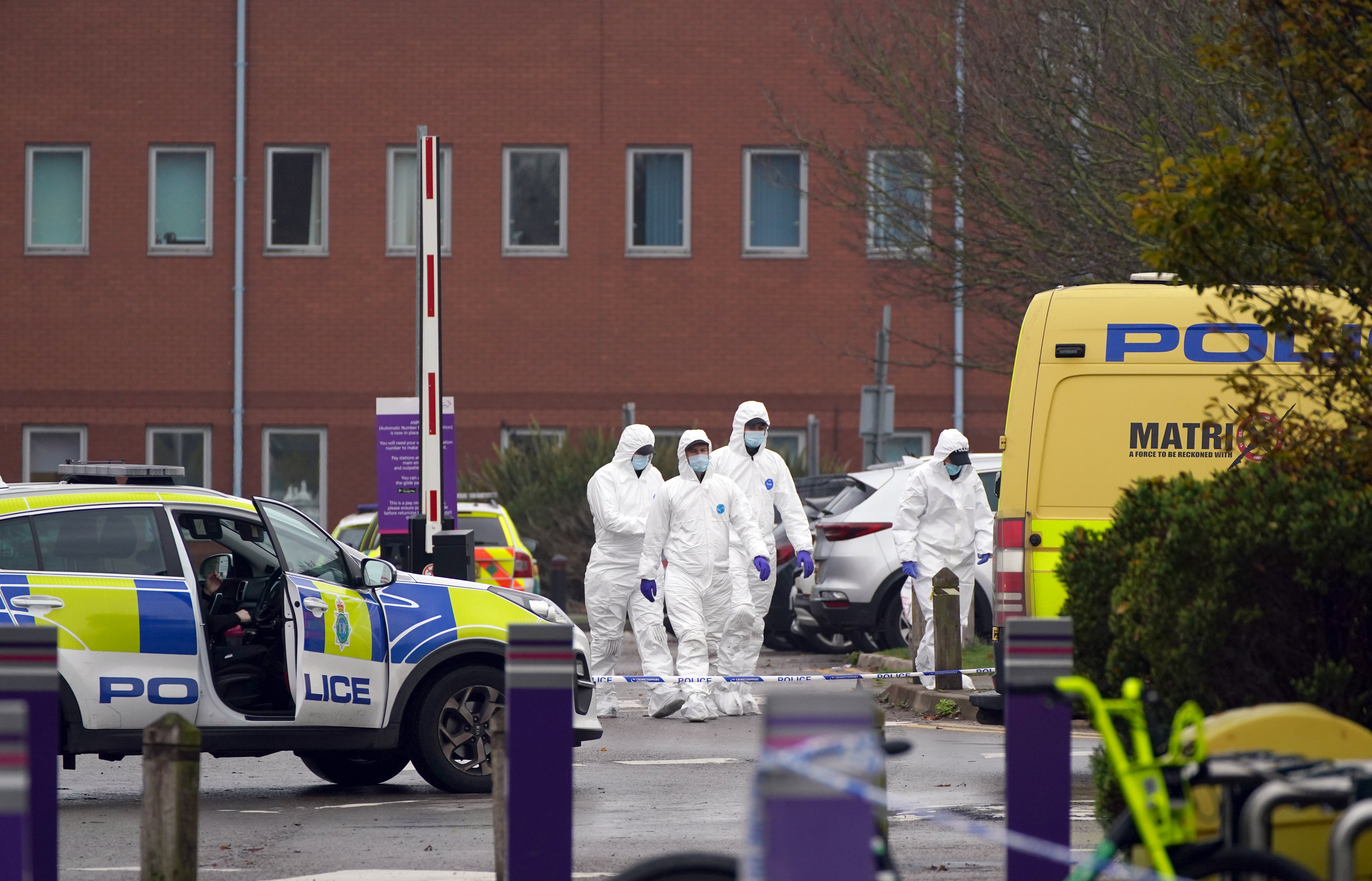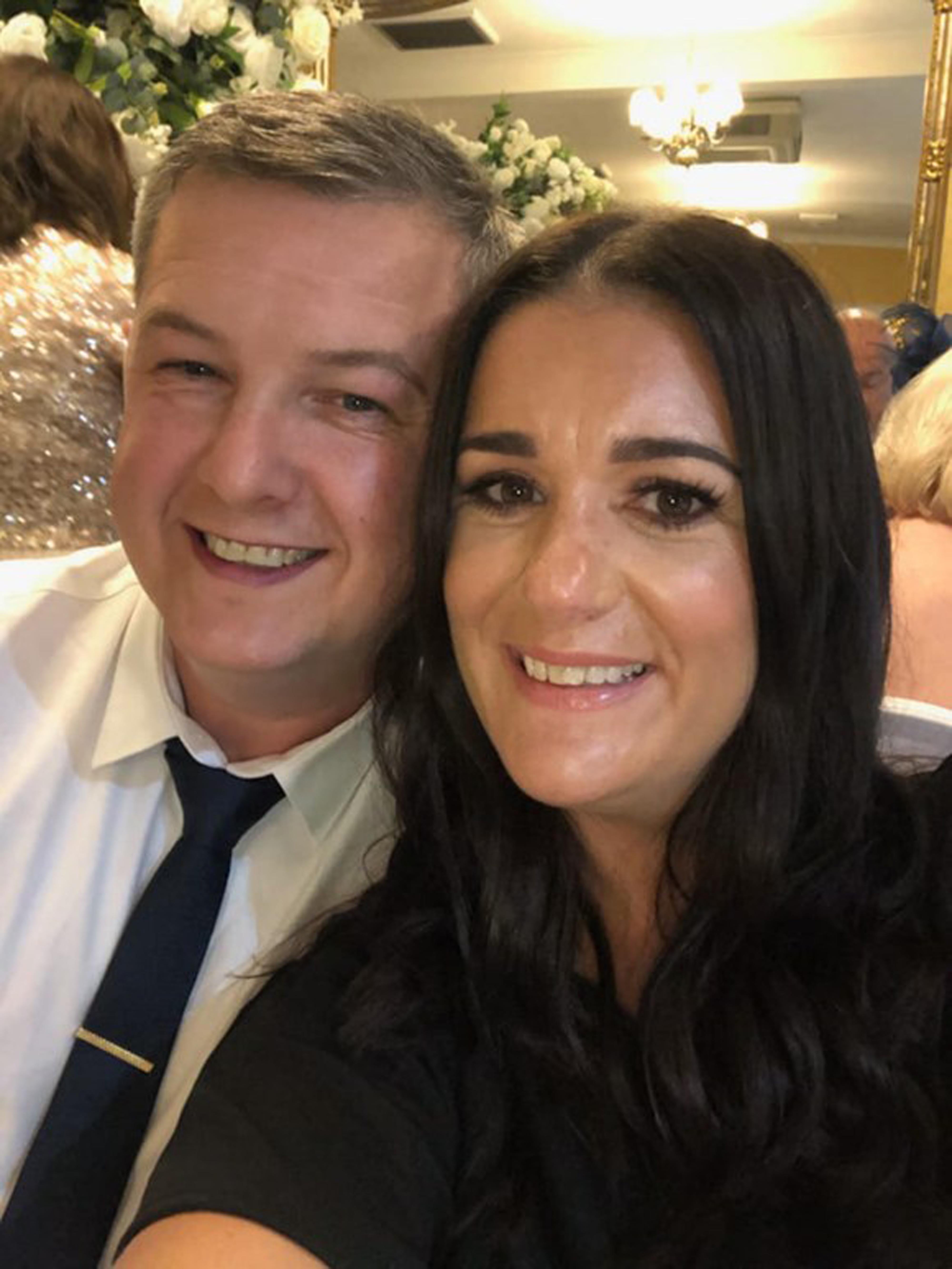Liverpool bomber Emad al-Swealmeen remained in the UK for a year after last asylum application refused, inquest hears
Bomber made purchases for explosives and improvised firearms while living at Home Office-provided accomodation
Your support helps us to tell the story
From reproductive rights to climate change to Big Tech, The Independent is on the ground when the story is developing. Whether it's investigating the financials of Elon Musk's pro-Trump PAC or producing our latest documentary, 'The A Word', which shines a light on the American women fighting for reproductive rights, we know how important it is to parse out the facts from the messaging.
At such a critical moment in US history, we need reporters on the ground. Your donation allows us to keep sending journalists to speak to both sides of the story.
The Independent is trusted by Americans across the entire political spectrum. And unlike many other quality news outlets, we choose not to lock Americans out of our reporting and analysis with paywalls. We believe quality journalism should be available to everyone, paid for by those who can afford it.
Your support makes all the difference.The Liverpool bomber remained in the UK for a year after his last asylum application was refused, an inquest has heard.
Emad al-Swealmeen, 32, killed only himself in the blast outside Liverpool Women’s Hospital on Remembrance Sunday.
The inquest heard that the bomber asked a taxi driver to take him to the location, but it was unclear whether he intended the device to detonate before he left the vehicle.
A coroner ruled that al-Swealmeen died from an explosion and subsequent fire caused by an improvised explosive device he manufactured “with murderous intent”.
He plotted his attack while staying in asylum accommodation provided by the Home Office, but police said they received no intelligence about his activities.
Liverpool and Wirral Coroner's Court heard that self-manufactured items likely to be components of improvised firearms were found at the Serco-run Sutcliffe Street address.
He rented a separate flat around two miles away, in Rutland Avenue, from April that became the “bomb-making factory”.
Detective Chief Inspector Andrew Meeks, the senior investigating officer, told the inquest the device used a homemade explosive charge.
He said there was no evidence to suggest anyone else had been involved with the procurement of materials or construction of the bomb, but investigations were continuing.
Purchases for improvised firearms or homemade explosives started in March 2020 - 18 months before the attack - including 2,000 ball bearings.
The coroner said police declared the bombing a terrorist incident but still do not know what al-Swealmeen's intention or motivation had been.
The inquest heard that al-Swealmeen came to the UK legally in May 2014 with a Jordanian passport and UK visa.

Senior coroner Andre Rebello said: “Shortly after his arrival he claimed, it is believed falsely, that he was of Syrian heritage and claimed asylum as a refugee from that country.”
He said that claim and all subsequent claims for asylum were turned down, with the latest refusal in November 2020. The Home Office has previously refused to comment on why he was not deported.
Following revelations that al-Swealmeen had converted to Christianity in 2015, the coroner asked Det Ch Insp Meeks whether the move could be to strengthen his asylum claim.
The officer said: “I'd agree with that because he would claim he'd be liable to persecution on return to Syria or Iraq.”
The inquest heard that a copy of the Quran and a prayer mat were found at al-Swealmeen’s home, and Mr Rebello said: “It was fairly evident that he carried out the religious duties of someone who is a follower of Islam, not withstanding the reported conversion to Christianity.“
Al-Swealmeen phoned his brother on 14 November, two days before the bombing, and suggested he might do ”something bad“.
Recounting evidence from the terrorist’s brother, Mr Rebello told the inquest: ”He says towards the end of the call Emad said something like 'if I do something bad that will affect the family, what do you think?'
“He replied something like 'don't do s***', advising him as an older brother, although this was something which caused him concern, knowing his previous issues.”

The coroner said al-Swealmeen was born in the Iraqi capital of Baghdad and had been in prison in the Middle East for a serious assault on another person, as well as being in trouble in Liverpool previously for possession of an offensive weapon. In 2015, al-Swealmeen pleaded guilty to possession of a blade in a public place at Liverpool Magistrates’ Court.
He was given a conditional discharge and was not supervised by probation.
Mr Rebello told the court: “One thing that struck me was that this lone actor from a disrupted family, with a bit of a chaotic background, could well have killed many, many innocent people and there doesn't appear to have been any opportunity to have detected this was about to happen.
”It is something that has been planned over many, many months.
“Clearly, from what he said to the family, he had something in mind and yet this was hidden from everybody.”
David Perry, the taxi driver who transported al-Swealmeen to Liverpool Women’s Hospital, said the trip was unremarkable and that he could not see his passenger’s face because he was wearing a surgical mask.
He said the only words al-Swealmeen spoke were “women’s hospital”, the inquest heard.
“As his car came to a stop he didn't notice anything unusual, no warning, no movement from the passenger, just the blast,” Mr Rebello said.
”He described the journey as non-eventful, saying if the bomb hadn't gone off he wouldn't have remembered anything about the journey.

“David described pressing on the brakes, coming to a slow stop. As the vehicle stopped, suddenly it felt like a wagon had crashed into the back of the car and he said he was thrown forwards and blacked out for a couple of seconds.”
He said when Mr Perry became conscious again he felt burning to his back.
“He could see smoke and smell burning plastic and the smell of burning body and thought 'I'm dead if I don't get out',” Mr Rebello said.
“He saw light coming from the floor near his driver's door and without taking his seatbelt off he pushed the door as hard as he could to force himself out of the car.”
Mr Perry escaped the car and staggered out, telling a man who approached: “The bastard tried to bomb me.”
The taxi driver was injured, suffering three fractures to the bottom of his back and damage to his eardrums.
Mr Rebello said: “I suppose he is probably one of the unluckiest taxi drivers around and yet possibly one of the luckiest given what could have been.”
The inquest heard that ball bearings from the bomb blasted the taxi’s windscreen into a tre and damaged hospital windows, and that if it had detonated in an open space it would have caused “damage to anyone or anything in its path”.
Additional reporting by PA



